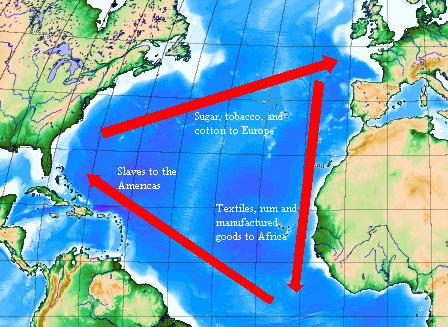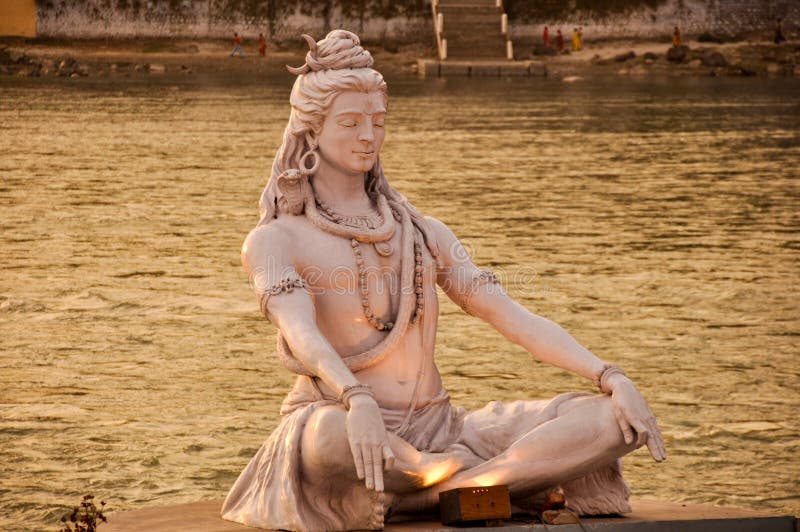Gutenberg Project
Frontispiece
Olaudah Equiano's autobiography
The name Olaudah Equiano will sound familiar to anyone who has
watched the movie Amazing Grace. He was prominent in in the movement to
abolish the slave trade since he had been a slave himself and was
familiar with the slave ships which transported blacks from Africa
to the Americas. You can become familiar with Equiano's experiences
by reading his book, THE INTERESTING NARRATIVE OF THE LIFE OF
OLAUDAH EQUIANO, OR GUSTAVUS VASSA, THE AFRICAN. WRITTEN BY
HIMSELF, published in 1789.
Equiano was born in an African village to an elder or chief of
the tribe in 1745. He was captured by blacks from a
different tribe at the age of 11 and turned over to white slavers
who transported him to the Caribbean and then to Virginia to be sold.
The book is available online through Gutenberg Press.
Equiano's autobiography can be searched by using the FIND process on your
computer. I learned that there were eight matches for the word
'Quaker' in the book. This led me to information about Equiano's
connection with Quakers. Although young Equiano suffered some of
the brutal treatment typical of enslaved Africans he
eventually was purchased by a Quaker merchant from whom Equiano
learned his master's business. He was allowed to do some trading
on his own, and accumulated enough money to purchase his freedom
in 1766 although his master was reluctant to give him up.
These are quotes from Equiano, who went by the name Gustavus Vassa, which was given to him by one of his owners during the years when he was a slave.
"[O]ne day the captain of a merchant ship, called the Industrious
Bee, came on some business to my master's house. This gentleman,
whose name was Michael Henry Pascal, was a lieutenant in the royal
navy, but now commanded this trading ship, which was
somewhere in the confines of the county many miles off. While he
was at my master's house it happened that he saw me, and liked me
so well that he made a purchase of me. I think I have
often heard him say he gave thirty or forty pounds sterling for
me; but I do not now remember which. However, he meant me for a
present to some of his friends in England: and I was sent
accordingly from the house of my then master, one Mr. Campbell, to
the place where the ship lay; I was conducted on horseback by an
elderly black man, (a mode of travelling which appeared very odd
to me). When I arrived I was carried on board a fine large
ship, loaded with tobacco, &c. and just ready to sail for
England."
...
"With fluttering steps and trembling heart I came to the captain,
and found with him one Mr. Robert King, a quaker, and the
first merchant in the place. The captain then told me my
former master had sent me there to be sold; but that he had
desired him to get me the best master he could, as he told him I
was a very deserving boy, which Captain Doran said he found to be
true; and if he were to stay in the West Indies he would be glad
to keep me himself; but he could not venture to take me to London,
for he was very sure that when I came there I would leave him. I
at that instant burst out a crying, and begged much of him to take
me to England with him, but all to no purpose. He told me he
had got me the very best master in the whole island, with
whom I should be as happy as if I were in England, and for that
reason he chose to let him have me, though he could sell me to his
own brother-in-law for a great deal more money than what he got
from this gentleman. Mr. King, my new master, then made a reply,
and said the reason he had bought me was on account of my good
character; and, as he had not the least doubt of my good
behaviour, I should be very well off with him. He also told me
he did not live in the West Indies, but at Philadelphia, where
he was going soon; and, as I understood something of the
rules of arithmetic, when we got there he would put me to school,
and fit me for a clerk."
...
"We set sail once more for Montserrat, and arrived there safe;
but much out of humour with our friend the silversmith. When we
had
unladen the vessel, and I had sold my venture, finding myself
master
of about forty-seven pounds, I consulted my true friend, the
Captain,
how I should proceed in offering my master the money for my
freedom.
He told me to come on a certain morning, when he and my master
would
be at breakfast together. Accordingly, on that morning I went, and
met
the Captain there, as he had appointed. When I went in I made my
obeisance to my master, and with my money in my hand, and many
fears
in my heart, I prayed him to be as good as his offer to me, when
he
was pleased to promise me my freedom as soon as I could purchase
it.
This speech seemed to confound him; he began to recoil: and my
heart
that instant sunk within me. 'What,' said he, 'give you your
freedom?
Why, where did you get the money? Have you got forty pounds
sterling?'
'Yes, sir,' I answered. 'How did you get it?' replied he. I told
him,
very honestly. The Captain then said he knew I got the money very
honestly and with much industry, and that I was particularly
careful.
On which my master replied, I got money much faster than he did;
and
said he would not have made me the promise he did if he had
thought I
should have got money so soon. 'Come, come,' said my worthy
Captain,
clapping my master on the back, 'Come, Robert, (which was his
name) I
think you must let him have his freedom; you have laid your money
out
very well; you have received good interest for it all this time,
and
here is now the principal at last. I know Gustavus has earned you
more
than an hundred a-year, and he will still save you money, as he
will
not leave you:—Come, Robert, take the money.' My master then said,
he
would not be worse than his promise; and, taking the money, told
me to
go to the Secretary at the Register Office, and get my manumission
drawn up."
...
[The manumission read in part:]
"for ever, hereby giving, granting, and releasing unto him, the
said Gustavus Vassa, all right, title, dominion, sovereignty, and
property, which, as lord and master over the aforesaid Gustavus
Vassa, I had, or now I have, or by any means whatsoever I may or
can hereafter possibly have over him the aforesaid negro, for
ever. In witness whereof I the abovesaid Robert King have unto
these presents set my hand and seal, this tenth day of July, in
the year of our Lord one thousand seven hundred and sixty-six.
[Signed] Robert King."
[After years had passed:]
"We refitted as well as we
could the next day, and proceeded on our voyage, and in May
arrived at
Philadelphia. I was very glad to see this favourite old town once
more; and my pleasure was much increased in seeing the worthy
quakers
freeing and easing the burthens of many of my oppressed African
brethren. It rejoiced my heart when one of these friendly people
took
me to see a free-school they had erected for every denomination of
black people, whose minds are cultivated here and forwarded to
virtue;
and thus they are made useful members of the community. Does not
the
success of this practice say loudly to the planters in the
language of
scripture—"Go ye and do likewise?"
In October 1785 I was accompanied by some of the Africans, and
presented this address of thanks to the gentlemen called Friends
or
Quakers, in Gracechurch-Court Lombard-Street:
Gentlemen,
By reading your book, entitled a Caution to Great Britain and
her Colonies, concerning the Calamitous State of the enslaved
Negroes: We the poor, oppressed, needy, and much-degraded
negroes, desire to approach you with this address of thanks,
with our inmost love and warmest acknowledgment; and with the
deepest sense of your benevolence, unwearied labour, and kind
interposition, towards breaking the yoke of slavery, and to
administer a little comfort and ease to thousands and tens of
thousands of very grievously afflicted, and too heavy burthened
negroes.
Gentlemen, could you, by perseverance, at last be enabled,
under God, to lighten in any degree the heavy burthen of the
afflicted, no doubt it would, in some measure, be the possible
means, under God, of saving the souls of many of the oppressors;
and, if so, sure we are that the God, whose eyes are ever upon
all his creatures, and always rewards every true act of virtue,
and regards the prayers of the oppressed, will give to you and
yours those blessings which it is not in our power to express or
conceive, but which we, as a part of those captived, oppressed,
and afflicted people, most earnestly wish and pray for.
These gentlemen received us very kindly, with a promise to exert
themselves on behalf of the oppressed Africans, and we parted."
Equiano concluded his book with these words:
"My life and
fortune have been extremely chequered, and my adventures various.
Even
those I have related are considerably abridged. If any incident in
this little work should appear uninteresting and trifling to most
readers, I can only say, as my excuse for mentioning it, that
almost
every event of my life made an impression on my mind and
influenced my
conduct. I early accustomed myself to look for the hand of God in
the
minutest occurrence, and to learn from it a lesson of morality and
religion; and in this light every circumstance I have related was
to
me of importance. After all, what makes any event important,
unless by
its observation we become better and wiser, and learn 'to do
justly,
to love mercy, and to walk humbly before God?' To those who are
possessed of this spirit, there is scarcely any book or incident
so
trifling that does not afford some profit, while to others the
experience of ages seems of no use; and even to pour out to them
the
treasures of wisdom is throwing the jewels of instruction away."
THE END.






%2C_1789.png)




